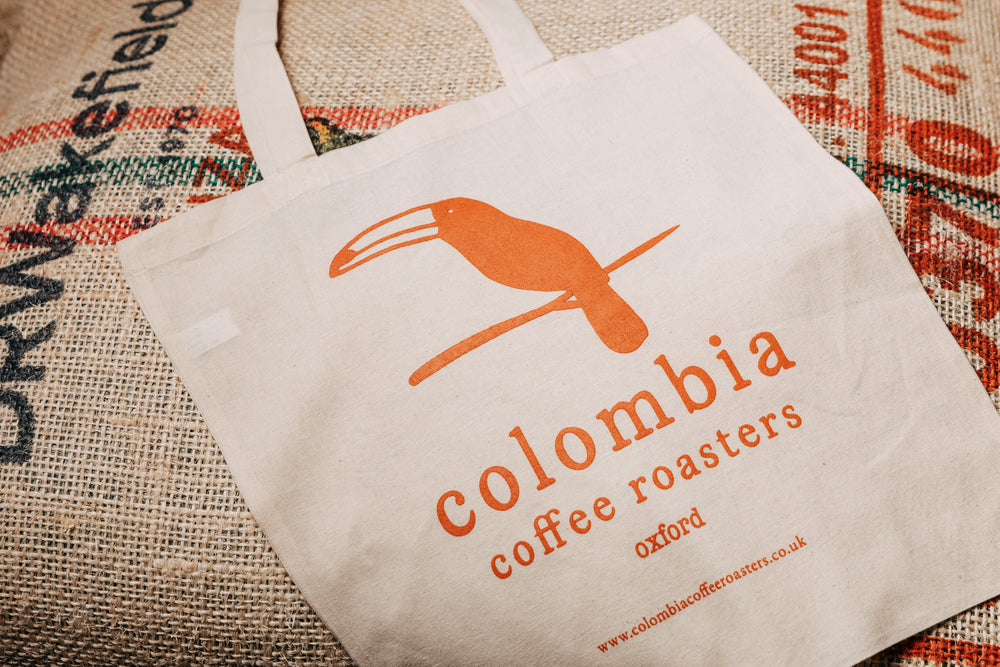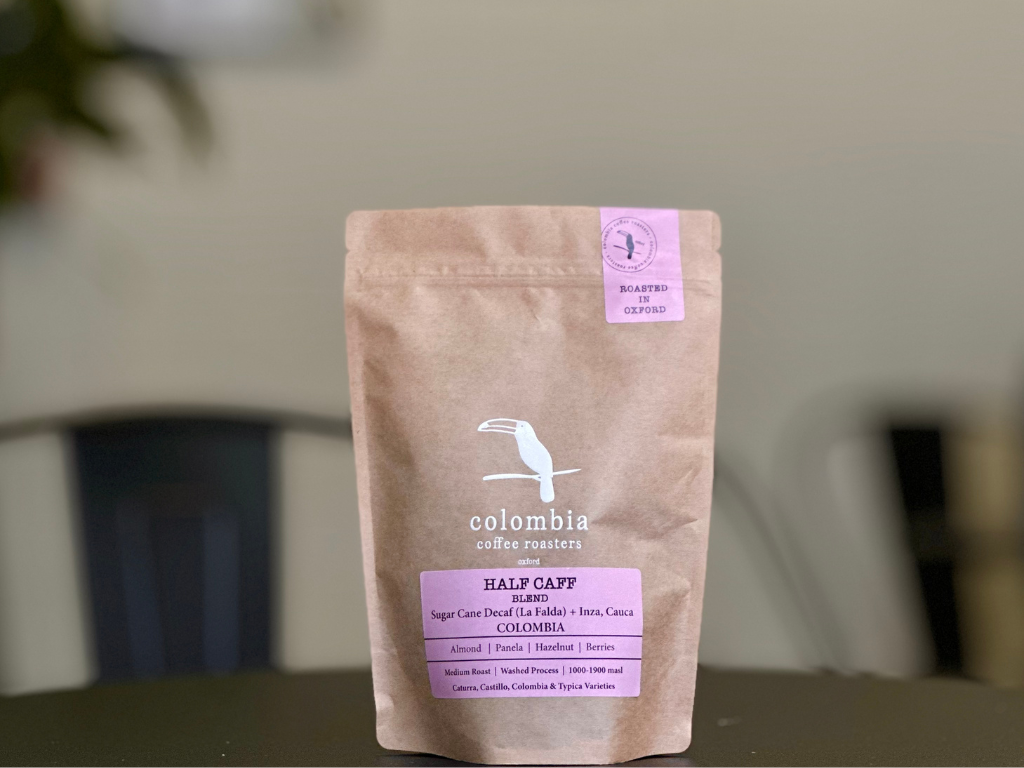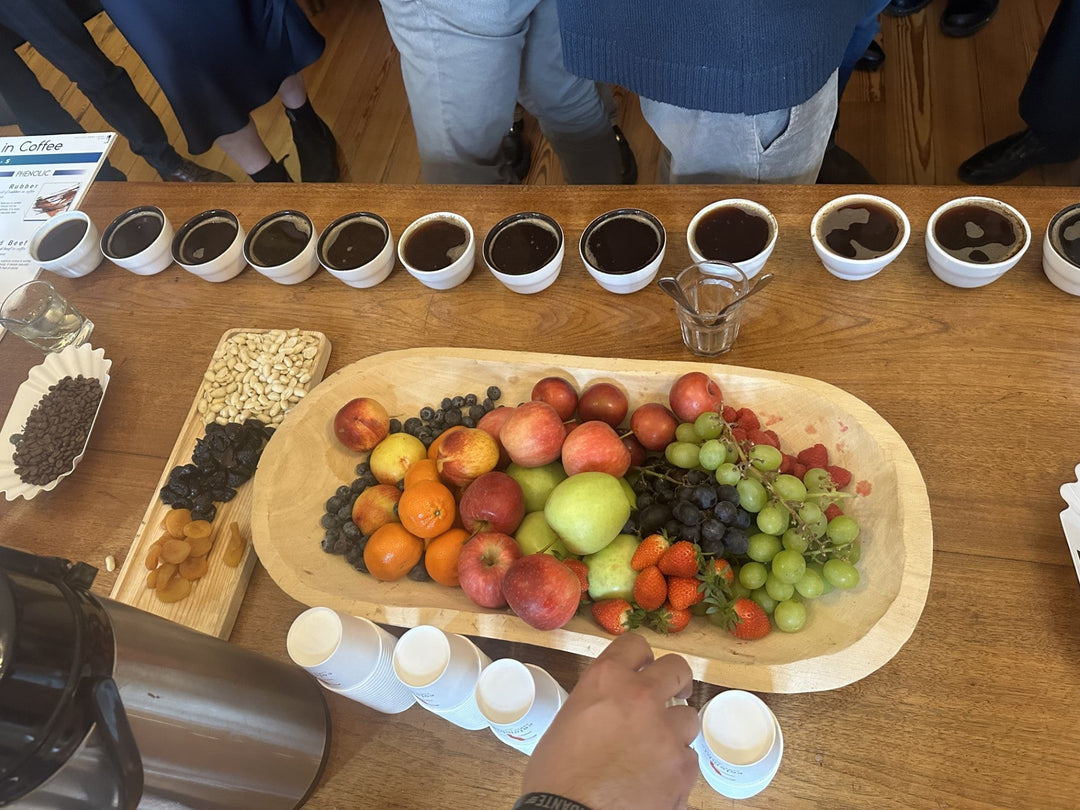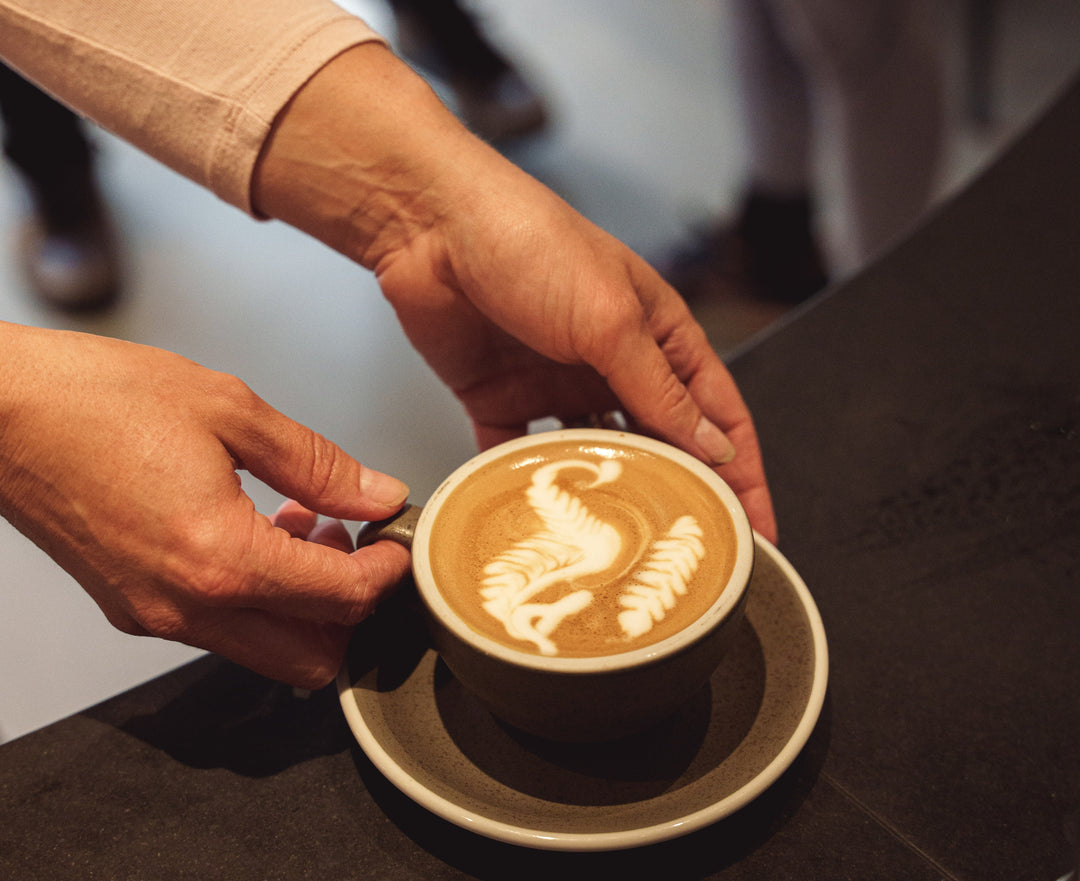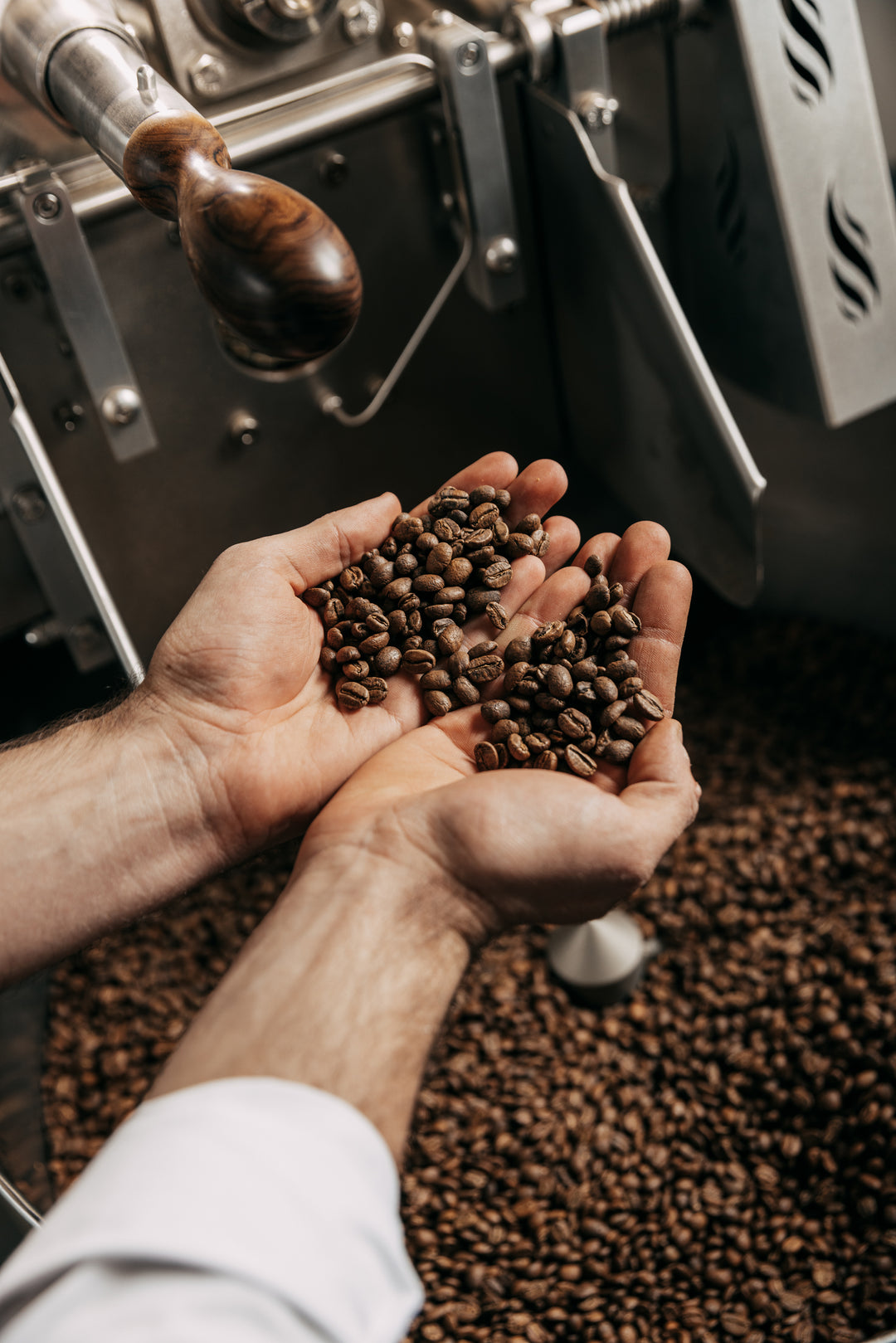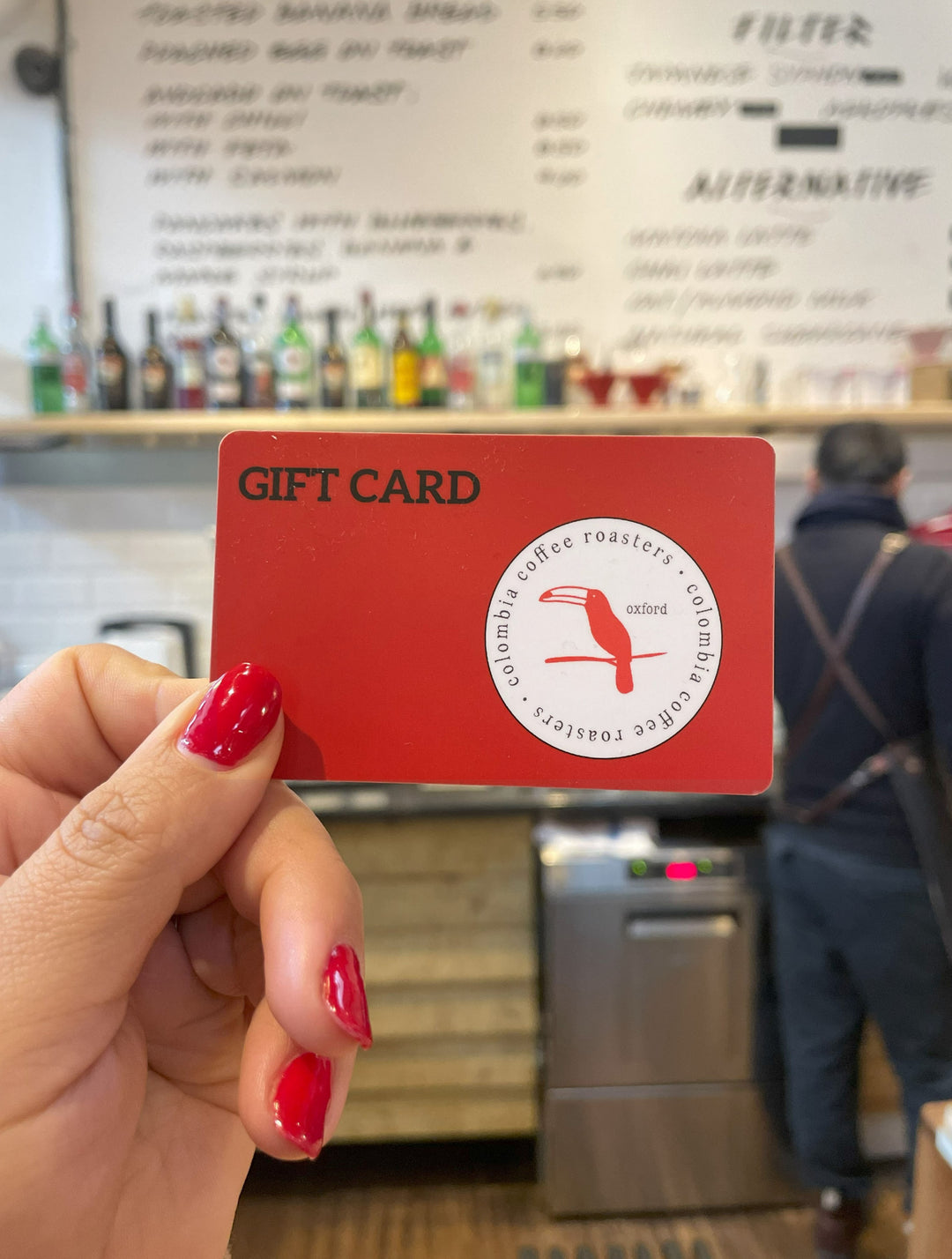Eco-Friendly Café: Does Your Favourite Place Live Up to Its Promises?

It's Monday morning, and you're tired from the weekend and forgot your morning coffee. You decide to treat yourself and pop into a local eco-friendly café. But how can you be certain about their environmental efforts?
At Colombia Coffee Roasters, sustainability is at the core of what we do, and chances are, it’s important to you too! So, we put together a quick and easy guide to help you shop as ethically as possible.
Ask Questions to Your Barista
When you're desperate for a caffeine fix, you might forget to switch your ethical brain on. These are some quick questions to ask your barista if you want to double-check, you're sipping sustainably!
"Can I recycle this coffee cup?"
A single-use coffee cup no longer serves a purpose. Did you know that over 2.5 billion coffee cups are thrown away every year in the UK alone? This is why for an eco-conscious coffee shop, recyclable cups are a must.
Check for the recycling logo on your coffee cup. If it states they're compostable, make sure to throw them in the organic waste or compost bin at home or around the city, and ensure they’re being disposed of correctly.
Tip: Always come prepared and bring your own travel mug from home. Some cafés even offer discounts to customers helping to protect the environment.
At our cafés and roastery, we apply a 10% discount to anyone with their own reusable cup and offer a free coffee to those who purchase one.
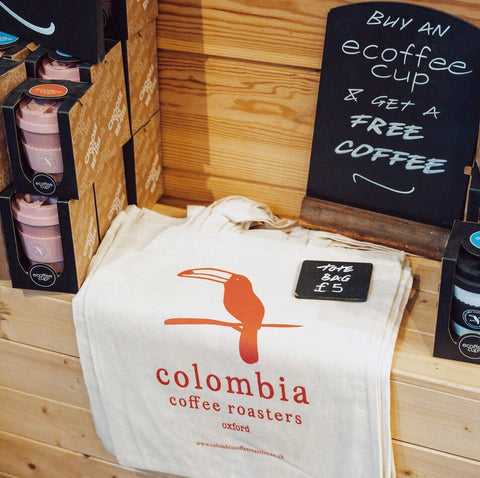
"I've Been Defeated... Can I Take the Rest of My Sandwich to Go?”
We've all had a moment when our eyes have been bigger than our stomachs - have no shame! But how are cafés preventing food waste?
Are they providing compostable take-away boxes? Can you see a clear division of waste bins nearby? Do they offer discounted "end of day" specials? Do they compost their food scraps?
At Colombia Coffee Roasters, we have end of the day offers and soon will be on the Too Good to Go app. Snap up a bargain and help us save food and drinks from the landfill.
Whatever it is, be sure to make sure the other half of your sandwich is going to the right place.
Tip: To avoid throwing anything away, bring a tupperware to enjoy leftovers later, or dispose of properly once home.
"Your Menu Looks Very Tasty, What Would You Recommend for Someone Who's Plant-Based?"
Contrary to larger coffee chains, a menu from an independent café can tell you a lot about their attitude towards the environment. If advertising 'vegan' options and 'meat-free' alternatives, it indicates they're making ethical choices, while also offering an alternative for customers with a compromised health -not necessarily keeping up with the latest food fads.
"It's Spotless in Here! How Do You Keep Everything So Shiny?"
It might look sanitary, but not everything that sparkles is gold... or good for the environment! The downfall of many 'green' businesses often lies in the attention to detail.
Catch us checking the labels of our cleaning products, trying to go the extra mile and do our bit for the environment.
From vegan approved machinery, to cruelty-free surface wipes, it's not impossible to keep up hygiene standards, without harming the planet. If in doubt, always ask.
"This Coffee Tastes Great, Where Do You Source Your Beans From?"
Ever had a sip of coffee and thought 'my goodness, how do I get my hands on these beans'? Find out about their suppliers for food, tableware, and other items.
We roast our own beans from Colombia. This helps us avoid having roasted coffee travel several miles to reach the city of Oxford. If your go-to coffee shop is a smaller business and does not have a roastery, make sure they source from a local roaster, and that their values are aligned.
Not only is small businesses supporting one another great for the local economy, but keeping food miles down to a minimum also equates to a happier planet.
Checking for Credentials
Sometimes the signs of sustainability could be right under your nose. Here’s a guide to certification spotting when visiting any café or restaurant.
Fair Trade Certified
A widely recognised logo, but what does it actually stand for? This certification makes certain that farmers in countries producing some food products we enjoy such as coffee, bananas, cocoa and other commodities are receiving fair terms for trading, and a fair price for their produce.
Fair Trade helps to promote equality across the globe, helping consumers make more ethical purchases. A part of the Fair-Trade premium paid by buyers goes towards community development funds, which are used for projects like healthcare, education, and infrastructure. It's a testament to a café's dedication to fairness, sustainability, and social responsibility.
Rainforest Alliance Certified
This award cares about the social, economic, and environmental impact of selected ingredients, such as coffee and cocoa. Produce with this seal of approval helps contribute to the protection of rainforests and the communities around them.
Certified farms must also adhere to standards that promote animal welfare. It confirms that the café's products, such as coffee, tea, and cocoa, are sourced from farms that follow sustainable agricultural practices. This includes conserving biodiversity, reducing deforestation, and preserving water resources.
Consider that obtaining a certification can be a costly and inaccessible endeavour for a small businesses and farmers. However, this does not mean that they are not sustainable. Pay attention to their practices.
Choose Wisely
By being a mindful consumer, we can support green businesses doing their bit for the environment. The future of our planet lies in our hands, and even our coffee choices can make a difference.
Next time you're out on a coffee run, try spotting signs of sustainability and having a chat with your barista to guarantee your oat milk cappuccino is made in harmony with love.
Visit us in-store and taste a coffee you know you can rely on. The proof is in the very first sip!
We are committed to make operations along our supply chain sustainable and contributing to the Zero Carbon Oxford goal by 2040. Check out our Sustainability Roadmap here!
Written by our guest author, Holly Dodd.
